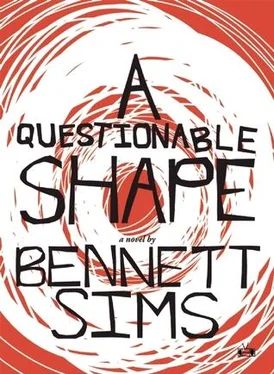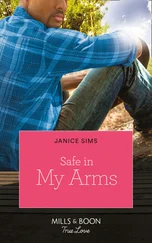I have been asking myself these questions as I lie here in bed, and I keep arriving at the same answer: I cannot read today because my reading has always been (before the outbreak I mean) teleological in nature, and this strikes me as unsustainable in an apocalyptic state. Take undergrad for example. Why, before the dead walked, did I study Kant? I never took a class on Kant, so the usual incentive structures (seminars, papers, grades) were not what motivated me. Why did I read him then? Because scholarly comprehension seemed valuable and because I looked forward to the day when each great thinker, like a grocery item, was scratched off my list; because, in certain circles, quoting or paraphrasing or alluding to the fact of having read Kant carried potent social cachet; because the thick gray spine of the Critique of Pure Reason was so conspicuous on my to-read shelf, so baldly visible a monument to my ignorance (not like the niggardly maroon spine of Descartes’ Meditations , which it was easy for a cursory glance to pass over, and so which I could comfortably leave on the to-read shelf, even though my not having read it was in some ways even more embarrassing and scandalous than my not having read the first Critique), that I couldn’t bear to invite fellow philosophy majors over to my dorm without prematurely promoting it to my shelf of read books, where of course it would torment me, like the beating of a telltale heart, as if I were in constant danger of someone following the sightline of my nervous glances, spotting the book, and asking, nightmarishly, ‘Ah, I see you’ve read the first Critique — how about those antinomies, eh?’ So when for months I mastered the Critique by diligent lucubration, I did so not for the present pleasure of the text, but for what I just now referred to as teleological motives, with an eye toward the self I might be at seventy: my to-read shelf barren, my banter well stocked and alluding wittily to Kant, the great project of my education completed.
Were all my motives so petty, designed merely to elevate my self-image, rather than my intellect or my spirit? No, I read, too, in the pursuit of things that seemed in inspired moments ineffable and vast, and noble in their vastness. 63But for the most part reading was just a joyless war of attrition with my to-read list. Which, needless to say, was a war of attrition that the list easily won, marshalling in its favor factorial laws so ancient, so textbook hydracephalic, that they’re almost clichéd: for every book I disposed of I acquired three. Nor was I even able to read these books with great rigor or systematicity, feverish as I was to be finished. If I organized any kind of Henry Bemis-ish summer syllabus for myself, linking texts and authors together in what seemed like illuminating combinations, I lasted through maybe two books of my master class before, distracted, I directed my energies elsewhere. How to commit myself to one line of texts when there was so much else to read, when time lavished on Russian Formalism was time lost in phenomenology, philosophy of language, critical theory? And so my to-read list layered itself in this way, with upper and lower crusts of priority, undergoing the most volatile upheavals and displacements. Certain entries from the bottom strata, books I hadn’t planned on reading for months, would with an unexpected shift in interest be extruded above all others, as if to be read immediately, until I visited a bookstore and buried them beneath new purchases, themselves to be sifted and sunk; I would carry Shklovsky in my backpack, his essay collection just at the surface of my reading program, and then suddenly other authors — because they had been mentioned in conversation, because I had read an interesting London Review of Books article about them, because I had otherwise been made to feel remiss for not having read them (as if the mere mention of an unread author’s name were some cloud of dust that I’d been left behind in, kicked up by a competitor I was compelled to catch up with) — would become my number-one priority, such that Heidegger or Wittgenstein or Agamben would all irrupt before him (i.e., Shklovsky), each promoted to the top of my reading program and abandoned in turn with equal fitfulness and inattention.
In a manner of speaking, my only goal in reading was to outlive my to-read list, to finish it before time and mortality finished me. And I was willing to make the appropriate sacrifices (a robust social life, for instance) to see this project through. What ultimately sustained and what alone could have sustained me were my teloi, specifically the illusion of progress that attended them, whereby I convinced myself that I was closer to my goal at twenty-four than I had been at twenty. 64I cleaved to this illusion not only down the ranks of my to-read list, but also through the pages of a single book. And in fact there was nothing more immediately or visibly satisfying to me, nothing more addictive or compulsive, than the physical progress that my reading made through a single book. How the completed pages thickened beneath the thumb that pinned them down, and how the unread pages thinned! How the dog-ear — the creased page corner that served to mark my place and that, when the book was closed, appeared as a single black fissure in the otherwise white field of the fore-edge — how each day that dark line went deeper and deeper in, rightward through the white, bearing down on the creamy pages between it and the back cover like some snowplow’s prow, shoveling all the snow of my ignorance! How when I pinned fifty or so pages between my thumb and forefinger and scaled my thumb back along their edges, letting them siffle down swiftly like the pages of a flipbook, I could watch all my marginalia and ink in motion, as if animated, this blue-black cartoon of exclamation points and scrawled words and ‘Rachel’ popping instantaneously into frame! It was little visible rewards like these that made me feel as if I were accomplishing something. They quantified my efforts. They were, if not the fruits of my labor, then the rinds of those fruits. And it was that much easier to stay home nights and read when I could track my dog-ear’s movement through the book, congratulating myself before going to sleep: ‘I’m a hundred pages smarter tonight.’ Or to finish the volume and slide it into place on my shelf, thinking, ‘I’m one book smarter tonight.’
Such was the nature of this illusion of progress that it often felt as if I were just within reach of finishing the list, even as the list tripled beneath me. One more year of reading, two at most, graduate school, and then the list would be done with. So even if Mazoch’s mention of a book that I hadn’t yet read — or, worse, that I had never heard of — induced in me real impulses of panic, panic that announced mortality in my worry as the graying of hair or a heart surgery might have in another man, then, still, that panic was simply enough put aside, mollified, forgotten, by reading another book. Even if I was easily discouraged by counting up my books’ spines and, assuming an average of thirty pages an hour, tabulating how much time I had spent reading them; 65even if I earnestly considered shunting myself off the track of my reading and onto that of some more vigorous hobby… still I recognized that such a path was by now closed off to me. Windsailing while unread books lay in my apartment would only make me anxious, and, besides, could be postponed, I consoled myself, until once the reading was done. For after all, didn’t the books get read, sometimes as many as two in an afternoon? Didn’t my bookshelf fatten like a leech? It seemed possible to finish the to-read list, not only within my lifetime, but within just a dedicated decade, giving over the rest of my life to vacation and illiterate ease. Was this merely a pipe dream? Was reading, as a worried professor once warned me it was, a race that I was always simultaneously winning and losing? 66I couldn’t be bothered, other than in bleak moments, to ask.
Читать дальше












